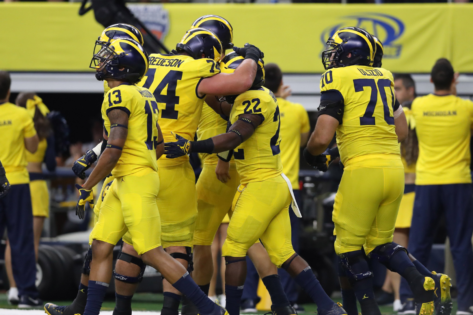The University of Michigan is stepping into a new chapter in college athletics with House Bill 4643, which was proposed by State Representative Joe Tate. The new legislation is looking to change how the state handles NIL deals, pushing back against some recent federal rules and NCAA guidelines. At its core, the bill would prevent Michigan institutions and boosters from being involved in reporting athlete NIL agreements or helping with investigations—an unusual move in the athletic landscape. Michigan’s proposal has caught the eye of the nation, joining a handful of other states in their efforts to challenge wider NIL regulations.
“There are conflicts with the Michigan statute that we have on the books allowing student-athletes to take advantage of their name, image and likeness while they are at the university that they are participating in and as a student,” Tate said. “It prohibits any entity from limiting a student-athlete’s ability to take full advantage of their name, image and likeness.”
So, building on that idea, Tom Dieters, who heads up the NIL collective Charitable Gift America, pointed out: “School administrators and coaches are very quick to negotiate their own seven figure contracts without a third party determining their value. Students should have those exact same rights.”
According to On3’s report, it suggests that by giving athletes and external collectives full control over NIL, without any oversight, Michigan could become a place where student-athletes might have the chance to earn more with fewer limitations. So, Michigan’s bill actually goes against the recent House v. NCAA case, which said that any NIL deals over $600 need to be reported and checked for market value through a national clearinghouse, along with some other oversight measures.
This federal framework has made it possible for universities to share up to $20.5 million in revenue with athletes, all while ensuring that there’s transparency in the deals and compliance is maintained.
Credits – X / Bleacher Report
So, here’s the deal: if Michigan goes ahead with HB 4643, its universities might find themselves in a bit of a pickle. They’ll have to choose between sticking to state law and possibly facing NCAA penalties, or following federal rules and going against what the state says. Certain individuals are saying the bill is all about giving players more power, but there are others—like some college football fans—who worry it might lead to a wild west of pay-for-play situations. Now, how does this compare to Tennessee?
Comparing the states’ NIL Strategies between Michigan and Tennessee
Tennessee went ahead and passed S.B. 536 back in May 2025, creating one of the most athlete- and school-friendly NIL laws in the country. Tennessee’s law takes a different route than Michigan’s by letting collectives collaborate directly with coaches and athletic departments. This means schools can actually help set up and promote NIL deals. It also protects both universities and athletes from any NCAA consequences and possible antitrust lawsuits, unless federal law or a court order says otherwise. This model has helped schools like UT and Vanderbilt take a more active role in the NIL process.
So, Michigan’s proposed HB 4643 is going in a different direction. It completely cuts out any involvement from institutions by making it illegal for universities, boosters, and athletic staff to report or negotiate NIL deals, as well as to help with NCAA investigations. The bill focuses on athlete sovereignty, making sure that deals are just between the athlete and outside collectives.
Both states are trying to get ahead of federal NIL oversight and the NCAA’s House settlement, but they have different ideas about what freedom should look like. Michigan is all about making things easier and cutting through the red tape to attract top recruits who value their independence. On the flip side, Tennessee is all in on providing that hands-on support from coaches and schools, which is super appealing for athletes looking for guidance and a chance to shine in the spotlight.
The post Michigan Wolverines’ New NIL Bill Can Help Boost Recruitment by Shielding Players From New NCAA Rules appeared first on EssentiallySports.
